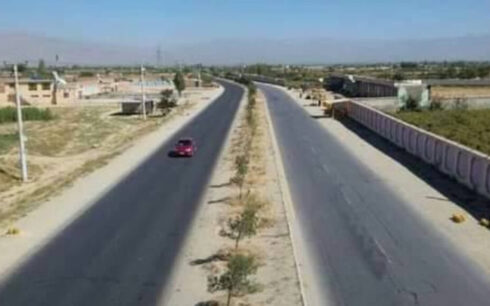The Universal Periodic Review by the UN Human Rights Council is set to evaluate Afghanistan’s human rights situation during a session on Monday.
An official from Afghanistan’s permanent mission in Geneva said the review would consider three documents detailing the human rights conditions in the country through May 10.
Meanwhile, women’s rights activists emphasized that the session should transcend mere statements and initiate practical measures to improve the human rights landscape in Afghanistan.
Elaha, a pseudonym for a woman detained by the Taliban last year on charges of not wearing a hijab, described her imprisonment as nightmarish. “Taliban prisons are overflowing with women, children, journalists, and ethnic minorities, particularly Hazaras, who endure daily torture,” she said. “Since the Taliban’s takeover, the violence and incidents have escalated, making homes unsafe, especially for women.”
Elaha’s account is among the myriad testimonies of women and girls facing severe restrictions under the Taliban regime.
Three primary topics will be addressed at the session:
The national report on the human rights situation.
Reports from independent human rights experts and groups.
Contributions from human rights organizations and civil society groups.
Mohibullah Naib, head of the human rights section at Afghanistan’s Permanent Mission in Geneva, stated that the national report was compiled in collaboration with numerous human rights organizations and advocates.
This session marks the fourth Universal Periodic Review of UNHRC since its inception in April 2008. The first review of Afghanistan’s human rights was in 2009, followed by reviews in 2014 and 2019.
Activists are urging for effective actions to ameliorate human rights conditions in Afghanistan. “Historically, such sessions by the UN Human Rights Council have not yielded significant improvements, particularly for Afghan women, girls, and vulnerable ethnic groups impacted by Taliban policies,” said Maryam Maroof Arveen, leader of the Purple Saturdays Movement. She expressed hope that the session would lead to tangible improvements.
Arveen advocated for “maximum pressure on the Taliban group to enhance the human rights, particularly the Islamic rights and freedoms, of Afghan women and girls.”
Delegates from Brunei, India, and the Netherlands are slated to present the report on the human rights review in Afghanistan.
Afghanistan is among the 14 countries discussed at the current Universal Periodic Review of UNHRC.
“The human rights situation in Afghanistan is dire and alarming,” said Zarifa Salangi, a women’s rights advocate. She called for urgent international action to prevent further suffering among Afghanistan’s people, including women, youth, and children.
The review occurs amid severe human rights violations by the Taliban, with more than half of the country’s population deprived of fundamental rights, including education and employment.





